About East Bay Health Center- Barrington
East Bay Health Center’s Barrington site is run by East Bay Community Action Program (EBCAP). You can find them in the heart of the beautiful coastal town of Barrington, Rhode Island. They offer stabilization services in their emergency center, as well as outpatient treatment for youths and adults experiencing substance use disorder.
What’s special about East Bay Health Center is that their goal is to help you become self-reliant. They want you to have the ability and self-confidence to advocate for yourself and live a healthy life.
Stabilization Whenever You Need It
The East Bay Health Center emergency services are available 24/7 throughout the entire year, so you can get help immediately. They can stabilize your condition and provide acute psychiatric hospitalization to those experiencing severe behavioral health conditions.
While your condition is stabilizing, the team works to coordinate any further care and support you through difficulties that arise as you adjust to being in recovery. They can also help you reintegrate into your community
No ESP Needed for EBCAP
One thing I liked about EBCAP is that they place a lot of value in ensuring you understand what’s going on. Their “every door is the right door” policy means you might start out in a program that doesn’t meet your needs. The staff goes out of their way to connect you to the right people and explain why they’re transferring you to a different program if it’s necessary. They walk you through the process so you aren’t confused or overwhelmed. In their Family Health Care program, they even help you apply for health insurance and make sure you understand the care you’re entitled to.
It’s also cool that they’re centrally located among plenty of local attractions. If nature helps your recovery, you can drop by Osamequin Nature Trails and Bird Sanctuary by the Hundred Acre Cove or go to one of the many parks nearby.
Latest Reviews
Rehab Score
Gallery
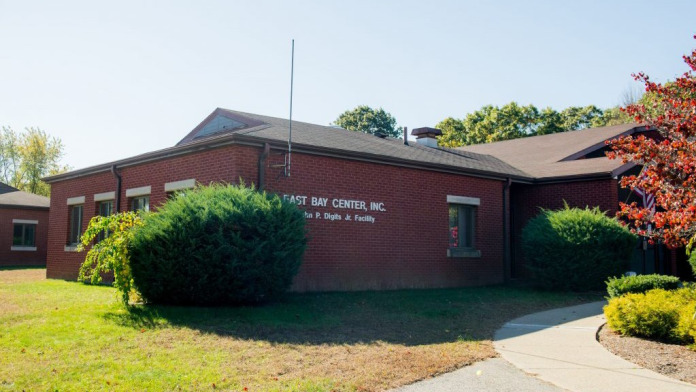
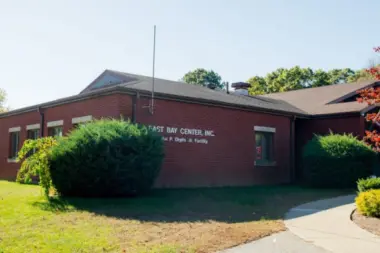
Other Forms of Payment
Private insurance refers to any kind of healthcare coverage that isn't from the state or federal government. This includes individual and family plans offered by an employer or purchased from the Insurance Marketplace. Every plan will have different requirements and out of pocket costs so be sure to get the full details before you start treatment.
Self-pay involves paying for treatment out of your own pocket. You can use savings or credit, get a personal loan, or receive help from family and friends to fund your treatment. If you don't have insurance or your insurance plan doesn't cover a specific program, self-pay can help ensure you still get the care you need.
Financial aid can take many forms. Centers may have grants or scholarships available to clients who meet eligibility requirements. Programs that receive SAMHSA grants may have financial aid available for those who need treatment as well. Grants and scholarships can help you pai for treatment without having to repay.
Sliding scale payments are based on a client's income and family size. The goal is to make treatment affordable to everyone. By taking these factors into account, addiction recovery care providers help ensure that your treatment does not become a financial burden to you or your family, eliminating one barrier to care.
Medicare is a federal program that provides health insurance for those 65 and older. It also serves people under 65 with chronic and disabling health challenges. To use Medicare for addiction treatment you need to find a program that accepts Medicare and is in network with your plan. Out of pocket costs and preauthorization requirements vary, so always check with your provider.
Medicaid is a state based program that helps lower-income individuals and families pay for healthcare. Medicaid covers addiction treatment so those enrolled can use their coverage to pay for rehab. When a program accepts Medicaid the client often pays very little or nothing out of their own pocket.
Military members, veterans, and eligible dependents have access to specific insurance programs that help them get the care they need. TRICARE and VA insurance can help you access low cost or no cost addiction and mental health treatment. Programs that accept military insurance often have targeted treatment focused on the unique challenges military members, veterans, and their families face.
Addiction Treatments
Levels of Care
Outpatient Programs (OP) are for those seeking mental rehab or drug rehab, but who also stay at home every night. The main difference between outpatient treatment (OP) and intensive outpatient treatment (IOP) lies in the amount of hours the patient spends at the facility. Most of the time an outpatient program is designed for someone who has completed an inpatient stay and is looking to continue their growth in recovery. Outpatient is not meant to be the starting point, it is commonly referred to as aftercare.
Intensive outpatient programs (IOP) support clients' long-term sobriety and their successful reintegration into the community through high-level services that evolve with clients' changing needs. The intensity and frequency of treatment decrease as clients stabilize, but most IOP programs involve between nine and 20 hours of treatment weekly. Intensive outpatient rehabs specialize in an array of services, including psychotherapy, medication assisted treatment (MAT), addiction and recovery education, and holistic care, such as massage and biofeedback.
A partial hospitalization program (PHP) offers intensive rehab without the need for 24-hour care. Whether it's an alternative to inpatient hospitalization or a step-down option post-hospital or residential care, PHP treatment often includes relapse prevention strategies, medication management, and other behavioral therapy interventions. PHP treatment typically requires daily sessions for 4-8 hours, 5 days a week. Depending on your progress, the length of PHP treatment can vary, averaging 90 days. The cost of PHP treatment varies but is often fully or partially covered by providers.
12 step programs may be found both in addiction treatment centers and in the community, where meetings are anonymous, free, and open to the public. These programs presume that sustained recovery depends on spiritual, psychological, and emotional growth and healing. Religious affiliation isn't required, but the 12 step recovery model is based on the belief in a higher power. Peer sponsors support participants as they use the steps to cultivate self-awareness, forgiveness, acceptance, and accountability.
Rehab aftercare programs provide a complete continuum of care for clients who have successfully completed higher level treatment programs but who may still be enrolled in formal outpatient treatments. These programs are also designed for clients who have been discharged from outpatient care. Drug rehab aftercare facilitates clients' long-term sobriety through a full suite of customized services aligned with the client's evolving needs. These services may include peer coaching, career counseling, and 12 step program induction, among others.
Treatments
Many of those suffering from addiction also suffer from mental or emotional illnesses like schizophrenia, bipolar disorder, depression, or anxiety disorders. Rehab and other substance abuse facilities treating those with a dual diagnosis or co-occurring disorder administer psychiatric treatment to address the person's mental health issue in addition to drug and alcohol rehabilitation.
Mental health rehabs focus on helping individuals recover from mental illnesses like bipolar disorder, clinical depression, anxiety disorders, schizophrenia, and more. Mental health professionals at these facilities are trained to understand and treat mental health issues, both in individual and group settings.
Programs
Adult rehab programs include therapies tailored to each client's specific needs, goals, and recovery progress. They are tailored to the specific challenges adult clients may face, including family and work pressures and commitments. From inpatient and residential treatment to various levels of outpatient services, there are many options available. Some facilities also help adults work through co-occurring conditions, like anxiety, that can accompany addiction.
Young adulthood can be an exciting, yet difficult, time of transition. Individuals in their late teens to mid-20s face unique stressors related to school, jobs, families, and social circles, which can lead to a rise in substance use. Rehab centers with dedicated young adult programs will include activities and amenities that cater to this age group, with an emphasis on specialized counseling, peer socialization, and ongoing aftercare.
Clinical Services
Cognitive Behavioral Therapy (CBT) is a therapy modality that focuses on the relationship between one's thoughts, feelings, and behaviors. It is used to establish and allow for healthy responses to thoughts and feelings (instead of unhealthy responses, like using drugs or alcohol). CBT has been proven effective for recovering addicts of all kinds, and is used to strengthen a patient's own self-awareness and ability to self-regulate. CBT allows individuals to monitor their own emotional state, become more adept at communicating with others, and manage stress without needing to engage in substance abuse.
Dialectical Behavior Therapy (DBT) is a modified form of Cognitive Behavioral Therapy (CBT), a treatment designed to help people understand and ultimately affect the relationship between their thoughts, feelings, and behaviors. DBT is often used for individuals who struggle with self-harm behaviors, such as self-mutilation (cutting) and suicidal thoughts, urges, or attempts. It has been proven clinically effective for those who struggle with out-of-control emotions and mental health illnesses like Borderline Personality Disorder.
Group therapy is any therapeutic work that happens in a group (not one-on-one). There are a number of different group therapy modalities, including support groups, experiential therapy, psycho-education, and more. Group therapy involves treatment as well as processing interaction between group members.
In individual therapy, a patient meets one-on-one with a trained psychologist or counselor. Therapy is a pivotal part of effective substance abuse treatment, as it often covers root causes of addiction, including challenges faced by the patient in their social, family, and work/school life.
Trauma therapy addresses traumatic incidents from a client's past that are likely affecting their present-day experience. Trauma is often one of the primary triggers and potential causes of addiction, and can stem from child sexual abuse, domestic violence, having a parent with a mental illness, losing one or both parents at a young age, teenage or adult sexual assault, or any number of other factors. The purpose of trauma therapy is to allow a patient to process trauma and move through and past it, with the help of trained and compassionate mental health professionals.
Research clearly demonstrates that recovery is far more successful and sustainable when loved ones like family members participate in rehab and substance abuse treatment. Genetic factors may be at play when it comes to drug and alcohol addiction, as well as mental health issues. Family dynamics often play a critical role in addiction triggers, and if properly educated, family members can be a strong source of support when it comes to rehabilitation.
Life skills, also referred to as coping skills, cover three categories: cognitive skills, interpersonal skills, and emotional skills. By working on each of these areas during treatment, you'll develop the skills you need to navigate daily life in recovery
Chronic substance use zaps the body of the nutrients it needs for optimal functioning. Nutrition therapy in Rhode Island helps you restore health and nutritional balance. This is an important part of your treatment plan to address the physical side of addiction.
Creative arts therapy typically includes four types of expressive arts: art therapy, dance therapy, music therapy, and writing therapy. Your therapist will work with you to determine which methods are the best fit for your personalized treatment plan.
Experiential therapy is a form of therapy in which clients are encouraged to surface and work through subconscious issues by engaging in real-time experiences. Experiential therapy departs from traditional talk therapy by involving the body, and having clients engage in activities, movements, and physical and emotional expression. This can involve role-play or using props (which can include other people). Experiential therapy can help people process trauma, memories, and emotion quickly, deeply, and in a lasting fashion, leading to substantial and impactful healing.
Staff & Accreditations
Staff
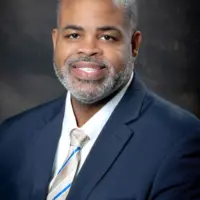
Rilwan K. Feyisitan, Jr.
President & CEO
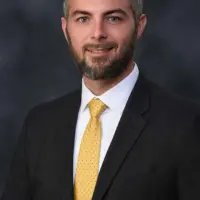
Jesse A. Shipley, MBA
COO
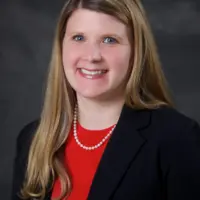
Kathryn Amalfitano
VP of Quality & Performance Improvement
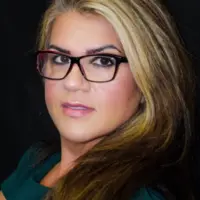
Aida Cabral
VP of Health Center Operations
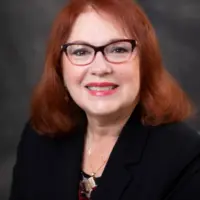
Rita Capotosto
VP of Family Development
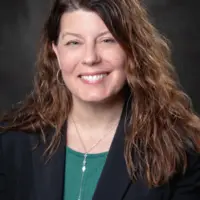
Justine Cordeiro
VP & CFO
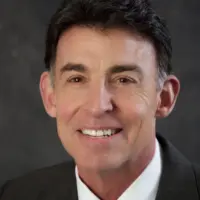
Robert Crossley
VP & Chief of Health Administration
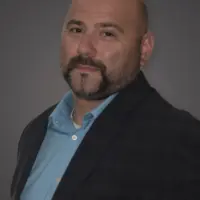
Cory Guglietti
VP of Assets and Property Management
Accreditations

State Licenses are permits issued by government agencies that allow rehab organizations to conduct business legally within a certain geographical area. Typically, the kind of program a rehab facility offers, along with its physical location, determines which licenses are required to operate legally.
State License: Rhode Island
Contact Information
2 Old County Road
Barrington, RI 02806